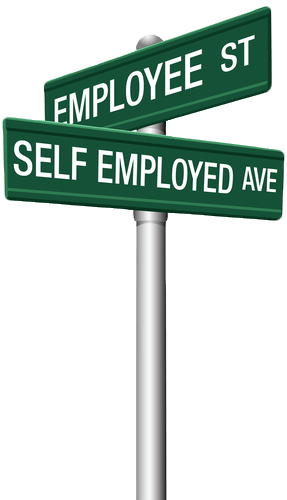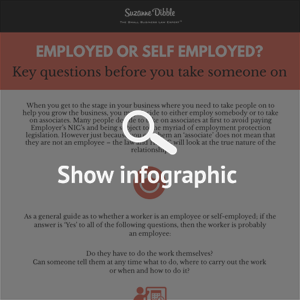
When you get to the stage in your business where you need to take people on to help you grow the business, you may decide to either employ somebody or to take on associates. Many people decide to take on associates at first to avoid paying Employer’s NIC’s and being subject to the myriad of employment protection legislation. However just because you call them an ‘associate’ does not mean that they are not an employee – the law and HMRC will look at the true nature of the relationship.
As a general guide as to whether a worker is an employee or self-employed; if the answer is ‘Yes’ to all of the following questions, then the worker is probably an employee:
- Do they have to do the work themselves?
- Can someone tell them at any time what to do, where to carry out the work or when and how to do it?
- Can they work a set amount of hours?
- Can someone move them from task to task?
- Are they paid by the hour, week, or month?
- Can they get overtime pay or bonus payment?
If the answer is ‘Yes’ to all of the following questions, it will usually mean that the worker is self-employed:
- Can they hire someone to do the work or engage helpers at their own expense?
- Do they risk their own money?
- Do they provide the main items of equipment they need to do their job, not just the small tools that many employees provide for themselves?
- Do they agree to do a job for a fixed price regardless of how long the job may take?
- Can they decide what work to do, how and when to do the work and where to provide the services?
- Do they regularly work for a number of different people?
- Do they have to correct unsatisfactory work in their own time and at their own expense?
See the employment status indicator at: //www.hmrc.gov.uk/calcs/esi.htm
Data Breaches Happen. How Prepared is your Organization?
Download Suzanne Dibble's Customizable GDPR Compliance Pack to Protect Your Business!













